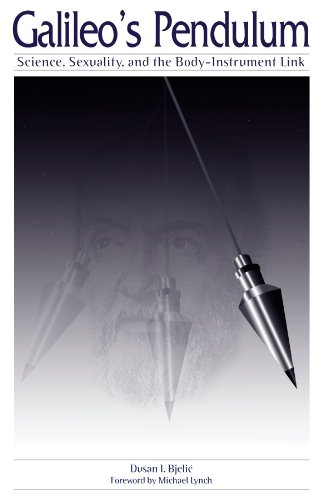

Most ebook files are in PDF format, so you can easily read them using various software such as Foxit Reader or directly on the Google Chrome browser.
Some ebook files are released by publishers in other formats such as .awz, .mobi, .epub, .fb2, etc. You may need to install specific software to read these formats on mobile/PC, such as Calibre.
Please read the tutorial at this link: https://ebookbell.com/faq
We offer FREE conversion to the popular formats you request; however, this may take some time. Therefore, right after payment, please email us, and we will try to provide the service as quickly as possible.
For some exceptional file formats or broken links (if any), please refrain from opening any disputes. Instead, email us first, and we will try to assist within a maximum of 6 hours.
EbookBell Team

4.1
20 reviews
ISBN 10: 0791486095
ISBN 13: 9780791486092
Author: Dusan I. Bjelic, Michael Lynch
Examines the history of science in light of recent theories of sexuality and the body. Drawing on the theories of Michel Foucault, Judith Butler, and others who have written on the history of sexuality and the body, Galileo's Pendulum explores how the emergence of the scientific method in the seventeenth century led to a de-emphasis on the body and sexuality. The first half of the book focuses on the historical modeling of the relation between pleasure and knowledge by examining a history of scientific rationality and its relation to the formation of the modern scientist's subjectivity. Relying on Foucault's history of sexuality, the author hypothesizes that Galileo's pendulum, as an extension of mathematics and the body, must have been sexualized by schemes of historical representation to the same extent that such schemes were rationalized by Galileo. The second half of the book explores the problems of scientific methodology and attempts to return the body in an explicit way to scientific practice. Ultimately, Galileo's Pendulum offers a discursive method and praxis for resexualizing the history of Galilean science.
PART ONE: Pleasure
1. Time, Pleasure, and Knowledge
2. The Perversion of Objectivity and the Objectivity of Perversion
3. The Jesuits’ Homosocial Ties and the Experiments with Galileo’s Pendulum
PART TWO: Pedagogy
4. The“ Body-Instrument Link” and the Prism: A Case Study
5. The Formal Structure of Galileo’s Pendulum
6. The Respecification of Galileo’s Pendulum
galileo and pendulums
galileo galilei pendulum
pendulum sexuality
galileo's principle of the pendulum
Tags: Dusan Bjelic, Michael Lynch, Galileo's, Science